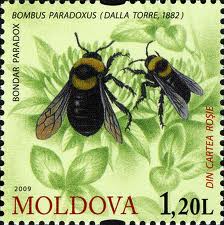Earlier this year, two studies published in Science showed that colonies are severely affected when bees are exposed to neonicotinoid pesticides of the kind commonly sprayed on crops. In one study, exposure led to a significant loss of queens in colonies of bumblebees (Bombus terrestris). In the other, on honeybees (Apis mellifera), the insecticide interfered with the foragers’ ability to navigate back to the hive. Now, in a study published in Nature, researchers at Royal Holloway, University of London, in Egham, UK, show that low-level exposure to a combination of two pesticides is more harmful to bumblebee colonies than either pesticide on its own. The results suggest that current methods for regulating pesticides are inadequate because they consider only lethal doses of single pesticides. Low doses of pesticides have subtle effects on individual bees and can seriously harm colonies.
Source: Nature, 21 October 2012
http://www.nature.com/news/the-buzz-about-pesticides-1.11626

- Log in to post comments
